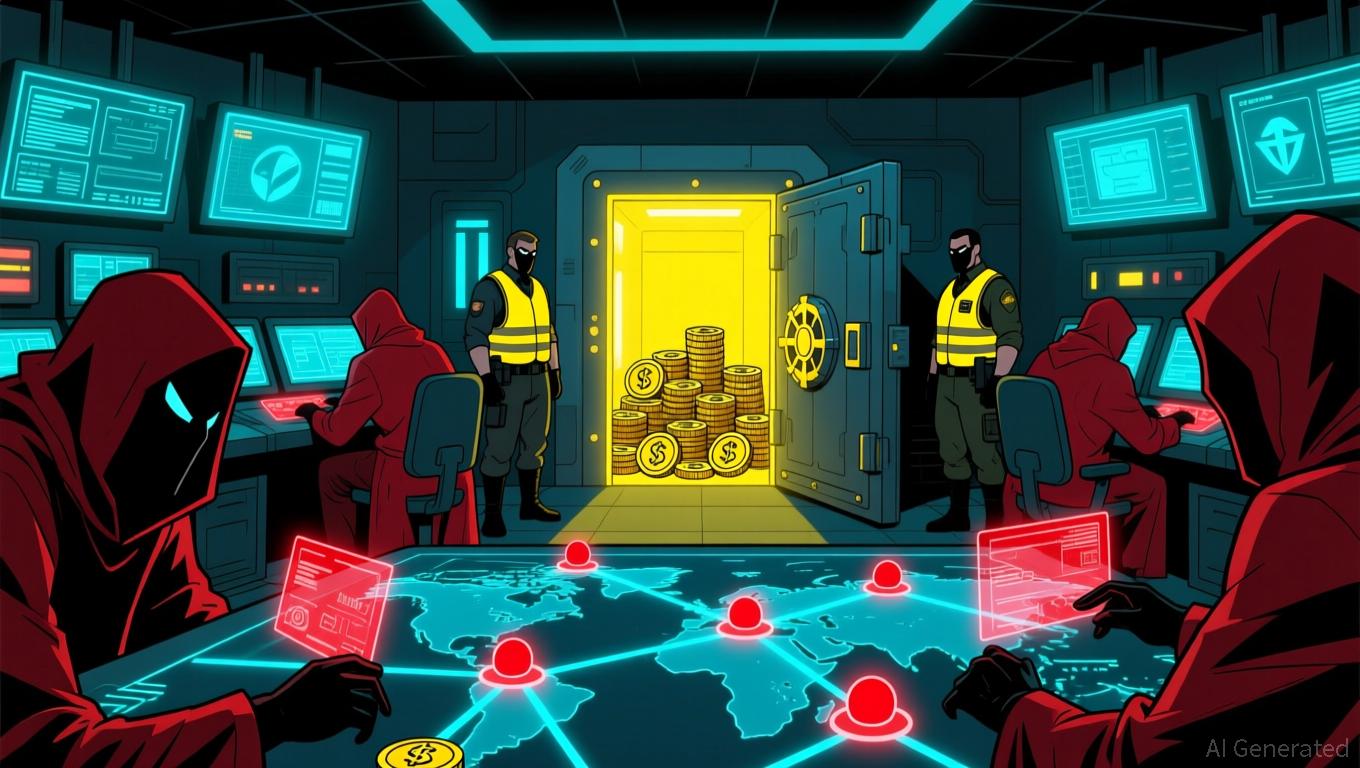Singapore Strives to Combine Innovation with Security in Advancing Digital Finance
- Singapore's MAS will pilot tokenized bills in 2026 and draft stablecoin regulations to build a secure digital financial ecosystem. - The initiative includes expanding CBDC trials with major banks and prioritizing reserve-backed stablecoins to mitigate systemic risks. - Global regulatory collaboration and a new tokenized capital markets guide aim to harmonize rules while fostering innovation. - By addressing liquidity gaps and enhancing interoperability, Singapore seeks to attract institutional investors
Singapore to Launch Tokenized MAS Bills Pilot and Enact Stablecoin Regulations, Aiming for a Robust Digital Finance Environment
The Monetary Authority of Singapore (MAS) will begin piloting tokenized MAS bills in 2026 and introduce new laws to oversee stablecoins, as part of its comprehensive plan to build a secure and scalable tokenized financial ecosystem. MAS Managing Director Chia Der Jiun revealed these initiatives at the Singapore FinTech Festival, highlighting Singapore’s goal to become a leading global center for digital finance by adopting blockchain to upgrade its financial systems, as the
Chia pointed out that although tokenization is gaining momentum, asset-backed tokens have not yet reached widespread adoption, stressing the importance of clear regulations and technological progress. The upcoming stablecoin rules will focus on "robust reserve support and dependable redemption," ensuring stablecoins remain tied to fiat currencies and do not pose systemic threats, as the

A regulatory framework for tokenized capital market products will be released this week, demonstrating MAS’s dedication to supporting innovation while staying in line with global standards. Chia also mentioned ongoing cooperation with international regulators to standardize rules, which is vital for enabling cross-border use of tokenized assets. This reflects similar efforts by the Bank for International Settlements (BIS) and the G20 to establish unified guidelines for digital currencies, as the
This announcement comes as Singapore rapidly adopts fintech solutions, including early implementation of blockchain-based trade finance and regulatory sandboxes for digital banks. By formalizing stablecoin regulations and advancing CBDC integration, MAS seeks to resolve issues of liquidity, transparency, and interoperability that have limited the widespread use of tokenized assets. Experts suggest that Singapore’s forward-thinking approach may draw institutional investors and technology companies looking for a regulated space to innovate in digital finance, as the
Disclaimer: The content of this article solely reflects the author's opinion and does not represent the platform in any capacity. This article is not intended to serve as a reference for making investment decisions.
You may also like
Bitcoin News Today: Bitcoin Plummets: Is This the Start of a Bear Market or Preparation for a 2026 Recovery?
- Bitcoin nears six-month lows as fear index hits seven-month low of 15. - Massive ETF outflows and fading Fed rate-cut hopes signal waning institutional confidence. - Chain data shows long-term holder sales and bearish sentiment below key support levels. - Analysts debate bear market risks vs. potential 2026 rebound amid bullish chart patterns.

Bitcoin Updates: CME's Cryptocurrency Expansion Gains Traction While Regulators Prepare for Major Reforms
- Bitcoin options traders show resilience amid volatility, with calls outpacing puts as derivatives data hints at a potential price floor. - CME Group expands crypto influence through new partnerships and regulatory reforms, including potential U.S. spot trading approval by late 2025. - Bipartisan Senate bill proposes CFTC oversight of digital commodities, aiming to unify regulation but leaving gaps in stablecoin and DeFi sectors. - Market focus shifts to macroeconomic indicators, with November CPI and FOM

DOJ Cracks Down on North Korea's Cryptocurrency Network by Seizing $15M in Tether
- U.S. DOJ seized $15M in Tether linked to North Korean hackers, targeting sanctions-busting crypto operations via stolen identities and remote work schemes. - APT38 group and "domestic helpers" facilitated DPRK fund siphoning, masking IP addresses and routing payments to evade sanctions. - The crackdown highlights rising stablecoin risks, regulatory scrutiny, and cross-border efforts like the U.S.-Thailand $12M USDT seizure. - Investors face increased volatility and compliance costs, while Trump's crypto

$BCH Trades At $497.02 — New Earth Version 2 ($EV2) Presale Draws Investor Interest
